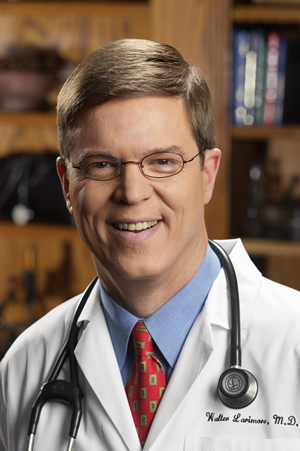
Dear Dr. Walt,
A group from our church is heading overseas for a three-week mission trip. We’ll be spending one week in each of three different countries — two in Africa and one in the Middle East. We have a bunch of questions for you and hope you can either help us or point us in the right direction.
—Wanderers from Wyoming
#1— Should we assume our primary care physicians will know all the potential health risks we’ll encounter for the geographic area where we’ll be traveling … such as malaria, yellow fever, and typhus?
I’m a family physician who happens to keep up with travel medicine. Yet, even so, I do not recommend my patients come to me for specific travel advice. Instead, I recommend they go to a certified travel medicine clinic four to six weeks before traveling (although even last-minute consults can be very helpful). Seeing a travel clinic is especially helpful if you have a more complex itinerary (which you all do) or if you have any sort of chronic health problem — especially if you are taking a prescription medicine.
You can check to see if your local health department offers pre-travel consultations. Or, you can find a travel clinic recommended by the U.S. Centers for Disease Control and Prevention (CDC) at tinyurl.com/findclinic. In addition, you may need to visit a yellow fever vaccination clinic if your travel plans include visits to countries where yellow fever vaccination is recommended or required for entry.
#2— Are any prescription or over-the-counter (OTC) medications susceptible to heat or humidity? Any precautions about storage?
High temperatures and humidity can affect all medications — and as a result, your health. The Food and Drug Administration (FDA) says the optimal temperature range for prescription and over-the-counter drugs is between 68 and 77 degrees — and no drug should be exposed to temperatures higher than 86 degrees. The higher the temperature above this, the more risk, as heat, humidity and even direct sunlight may change the chemical composition of a medication. This is why drugs damaged by heat or humidity can lose their efficacy. For patients with such chronic illnesses as diabetes or heart disease, a damaged dose of a crucial medicine, like insulin or nitroglycerin, can be life threatening. When some antibiotics decay, they can cause stomach or kidney damage. But even common medicines can break down with potentially harmful effects.
I tell my patients that medicines that have changed color or consistency should never be ingested, even if they haven’t reached their expiration date. This includes pills that are sticking together or that have turned into powder, or liquids that have changed color or become cloudy. So it’s important to keep your medications protected. Ironically, your bathroom’s medicine cabinet is not recommended as an optimal place to store medication because of bathroom heat and humidity. Instead, choose a cool, dry and dark place, such as a shelf in a closet.
When traveling, keep medicines in a purse or a separate bag. Always carry your medicines onto the airplane. Unexpected flight delays can occur, and checked bags can easily be lost or miss a connection. In addition, baggage holds are not usually temperature controlled and can easily become freezing or scorching hot. Security procedures allow for carry-on medicines, but you may need to allow extra time for check-in.
Once you arrive, if you are going to be in conditions that are hotter or colder than your medicine can tolerate, ask your pharmacist to recommend a pack that will keep your medicines within the recommended temperature range.
#3— Is it safe to buy foreign-made over-the-counter medicines?
I always recommend taking with you any and all medications you might need. A variety of travel first-aid kits are available that can service your entire group while traveling. And, most travel clinics also have kits you can purchase.
In addition, carry documentation from your doctor listing your prescriptions and what they are used for. Be sure the prescriptions include the various names (generic and trade names) and dosage. You can easily laminate the list with clear packing tape and keep it in your wallet or purse. Also include your physician’s phone number, as well as an emergency contact number.
#4— Are there any foreign prescriptions or over-the-counter (OTC) medicines that would be considered contraband in the U.S. and might cause problems at customs when returning to the U.S.?
You bet there are. Under federal law, it is illegal for anyone except a drug manufacturer to import prescription drugs into the U.S. These laws were established to protect consumers and to make sure that the only medications available in the U.S. have been produced by drug companies approved by the FDA and at locations inspected by the government.
Additionally, the FDA does not allow the re-importation of medications. For example, if a drug company makes an FDA-approved prescription drug and sends that drug to a pharmacy in another country, it is against the law for you to buy that drug in the foreign country and bring it back into the U.S.
To avoid potential problems going through security checkpoints and Customs, be sure to keep all prescriptions in their original bottles, so officials can easily identify the medicine that you’re carrying and verify that it is yours.
#5— How careful should we be about taking non-Western medicines? What if one of us has a stomachache, but the only medicine nearby is from a non-Western drug store? How much of a risk is there? I recommend you find a recommended and trusted health care provider. But, how do you find these folks? First of all, if you have contact with local missionaries, they can help direct you. Second, if you’ve purchased travel insurance with medical coverage, the company will usually have a 24-hour emergency call line from which you can get the contact information for trusted health professionals.
#6— Should we consider taking out a travel insurance policy? Is a policy worth the cost?
Many travelers are surprised to learn that their health insurance does not cover care outside of certain geographical areas. So, for those who do not have medical coverage when traveling abroad, I highly recommend purchasing travel insurance that also covers health care needs while abroad and medical evacuation. The U.S. State Department Web site, tinyurl.com/travinsure, contains a list of companies that offer travel insurance. Remember to bring your insurance information with you. You will likely need to contact your insurance company immediately to verify coverage and get your claim started. Don’t plan on waiting to return before you submit the paperwork. The delay will almost certainly cause problems with coverage and payment.
Also, I’ve found the travel advice of Rick Steves to be very helpful. You can find an article of his about travel insurance at tinyurl.com/travtips.
Research the phone numbers of U.S. embassies in the countries where you’ll be traveling. They can be a great help to U.S. citizens who have medical problems, have lost their passport, or who have encountered legal or other problems. Travelers who aren’t U.S. citizens can contact their own national embassies for similar assistance.
#7— Would you recommend that a traveler with food sensitivities or allergies research the foods and ingredients prevalent in the area he or she will be visiting?
Absolutely. Selecting safe foods here in the U.S. is becoming easier, but navigating a foreign menu can be a minefield of problem ingredients, such as salt, MSG, nuts, shellfish, etc. The biggest challenge for allergy sufferers heading overseas is communication, so it’s no surprise that English-speaking countries top the list of safe destinations. Traveling in developing countries can pose more risks due to the lack of labeling and the difficulty of tracing food ingredients, although the limited food products available might make it easier to avoid a single allergen.
A great tip is to carry translation cards — such as those available from Allergy UK (tinyurl.com/travcards) — that can help bridge the language barrier.
However, for people who suffer severe allergic reactions to food, the major risk may not occur in the country to which you are traveling, but from the airline meals you eat while flying there. Many airlines will prepare special meals according to individual requirements, but mistakes can sometimes occur. Even when an airline has promised a meal free from a certain ingredient, it is important to ensure the information has been passed on. Inquire while checking in and when boarding the plane.
Finally, taking a simple over-the-counter non-sedating antihistamine (like loratadine or fexofenadine) before your flight or meal may reduce the chances of symptoms occurring.
If you have been prescribed an adrenaline injector (like Epi-Pen), make sure you take at least two kits with you. In addition, be sure to carry a letter from your physician explaining what the adrenaline auto-injector pen is used for, its contents, and why it must be carried on the plane with you. You may want to also consider wearing a medical alert bracelet.
#8— Are there any common portable medical devices that require 110V power in the U.S. that might be incompatible with the power system in another country (220V)?
If any of your group is planning to travel with a medical device (i.e., nebulizer for inhalation medicine, CPAP machine, oxygen concentrator, etc.), be sure to check with the manufacturer of the device about using it in the countries to which you’ll be traveling, as well as the countries in which you might have a layover. And, of course, don’t forget to take plenty of extra batteries for any battery-powered devices, such as hearing aids, that you will take with you.
Preventing Traveler’s Diarrhea
Unclean food and water can cause travelers’ diarrhea and many other diseases. Travelers to developing countries are especially at risk. Reduce your risk by sticking to safe food and water habits. The CDC Website has a helpful set of recommendations. You can read it at tinyurl.com/travfood. But, here are a few to consider:
Food
Eat
Food that is cooked and served hot
Hard-cooked eggs
Fruits and vegetables you have washed in clean (bottled) water or peeled yourself
Pasteurized dairy products
Don’t Eat
Food served at room temperature
Food from street vendors
Raw or soft-cooked (runny) eggs
Raw or undercooked (rare) meat or fish
Unwashed or unpeeled raw fruits and vegetables
Condiments (such as salsa) made with fresh ingredients
Salads
Flavored ice or popsicles
Unpasteurized dairy products
Beverages
Drink
Water, sodas, or sports drinks that are bottled and sealed (carbonated is safer)
Water that has been disinfected (boiled, filtered, treated)
Ice made with bottled or disinfected water
Hot coffee or tea
Pasteurized milk
Don’t Drink
Tap or well water
Fountain drinks
Ice made with tap or well water
Drinks made with tap or well water (such as reconstituted juice)
Unpasteurized milk
Bathing, Showering, Brushing Your Teeth, and Swimming
Unclean water can also make you sick if you swallow it. While bathing, showering, or swimming, try not to get any water in your nose or mouth. In some areas, tap water may not even be safe for brushing your teeth, and you should use bottled water. People who are elderly or have weakened immune systems might want to stay away from areas where there is a lot of steam and water vapor that can be inhaled, such as showers and hot tubs.
You have asked excellent questions, but you are likely to come up with many more. And, we haven’t even addressed important issues like preventing bug bites, preventing sunburn and altitude sickness, taking prophylactic medicines, getting pre-trip vaccinations, or preparing for road and swimming safety. So for more information, one of the best sites on the Internet to explore for trustworthy and up-to-date advice is the CDC’s travel site. You can start your online exploration at tinyurl.com/travsmart, tinyurl.com/travinfo, or tinyurl.com/travpro.
And, of course, be sure to have folks back home praying for you—for safety, traveling mercy, and that God might bear much fruit in and through you on your mission trip for Him.
Walt Larimore, MD, is one of America’s best-known family physicians. He has been named in “The Best Doctors in America” and “Who’s Who in Medicine and Healthcare.” He’s also an award-winning medical journalist and the best-selling author or coauthor of more than 30 books. You can find his health blog and free daily devotional at www.DrWalt.comand his autographed books at drwaltstore.com, hosted by amazon.com.




